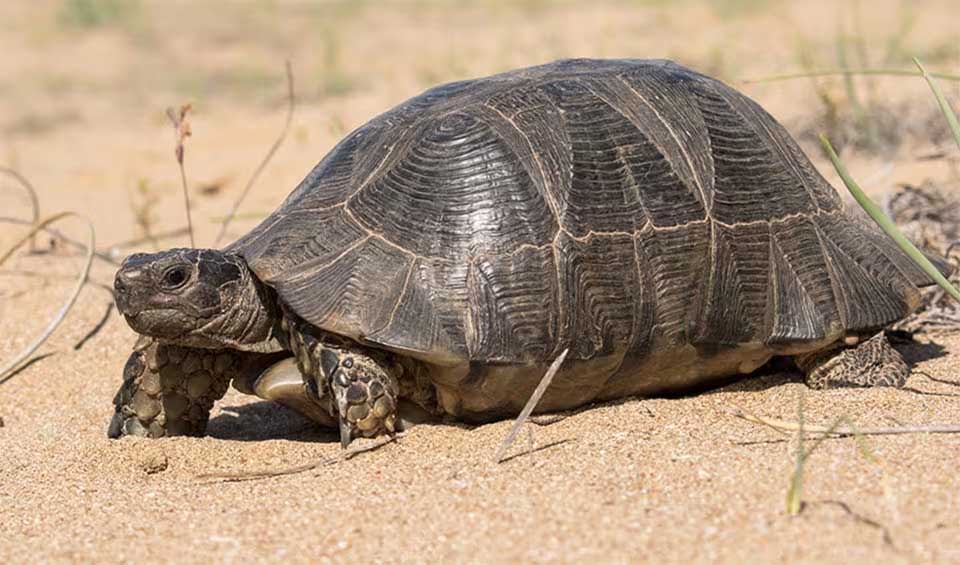One of the most distinct and fascinating tortoise species native to Greece, southern Italy, and the Balkans. This species is particularly admired for its unique shell design and gentle nature, making it a popular choice among reptile enthusiasts and conservationists alike.
One of the most striking features of the Marginated tortoise is its shell. The shell has a high, domed shape, which is not only beautiful but also serves as an effective defense mechanism against predators. The rear margin of the carapace (the top part of the shell) flares outward, which is a distinctive trait that gives the Marginated tortoise its name. This flaring creates an almost skirt-like appearance, especially in older, more mature individuals. The coloration of the shell typically includes a pattern of black and yellow or brown, forming a star-like or radiating pattern that helps with camouflage in their natural, rocky habitats.
Marginated tortoises are herbivores, feeding primarily on a variety of grasses, flowers, and some fruits. Their diet is high in fiber and low in protein, which is crucial for their digestion and overall health. In the wild, these tortoises play a significant role in their ecosystems by dispersing seeds and maintaining plant diversity through their grazing habits.
The Marginated tortoise’s behavior is as fascinating as it is gentle. It’s diurnal, meaning it’s most active during the day, especially in the mornings and late afternoons when the temperature is more suitable. During the heat of the day, they often seek shade or burrow into the ground to regulate their body temperature. This behavior, along with their longevity, is a testament to their resilience and the slow pace of life they embody.
Distribution
 Albania
Albania Bulgaria
Bulgaria Cyprus
Cyprus Greece
Greece Italy
Italy Spain
SpainAnything we've missed?
Help us improve this page by suggesting edits. Glory never dies!
Suggest an editGet to know me
Terrestrial / Aquatic
Altricial / Precocial
Polygamous / Monogamous
Dimorphic (size) / Monomorphic
Active: Diurnal / Nocturnal
Social behavior: Solitary / Pack / Herd
Diet: Carnivore / Herbivore / Omnivore / Piscivorous / Insectivore
Migratory: Yes / No
Domesticated: Yes / No
Dangerous: Yes / No




